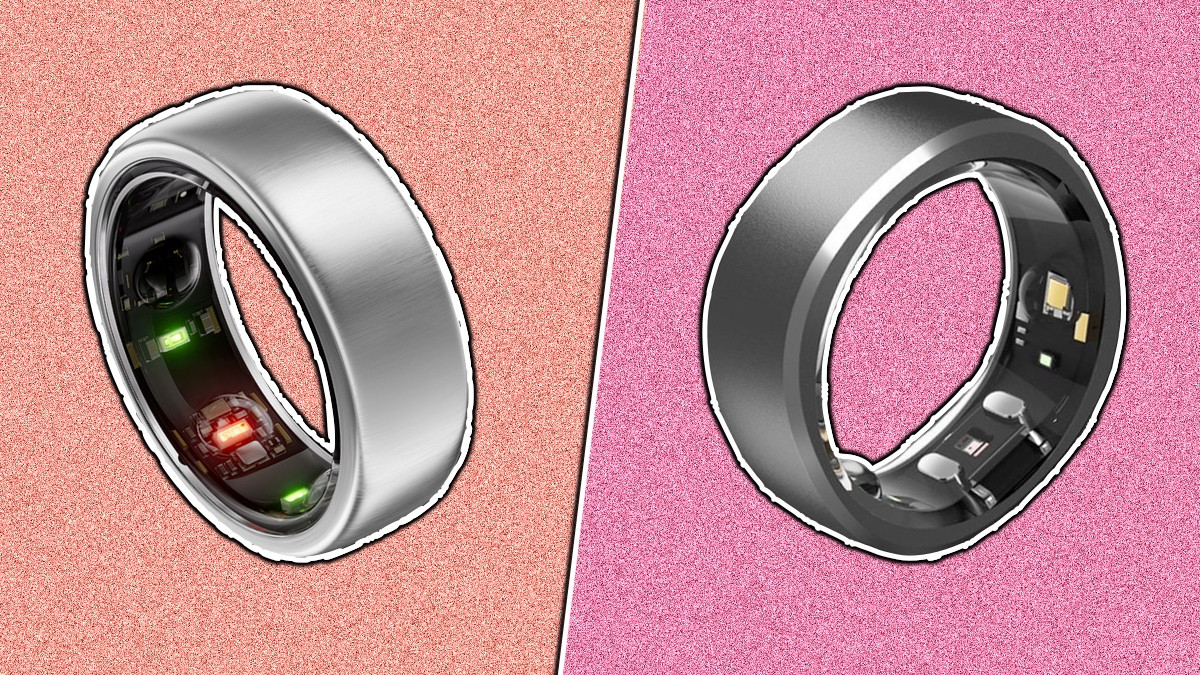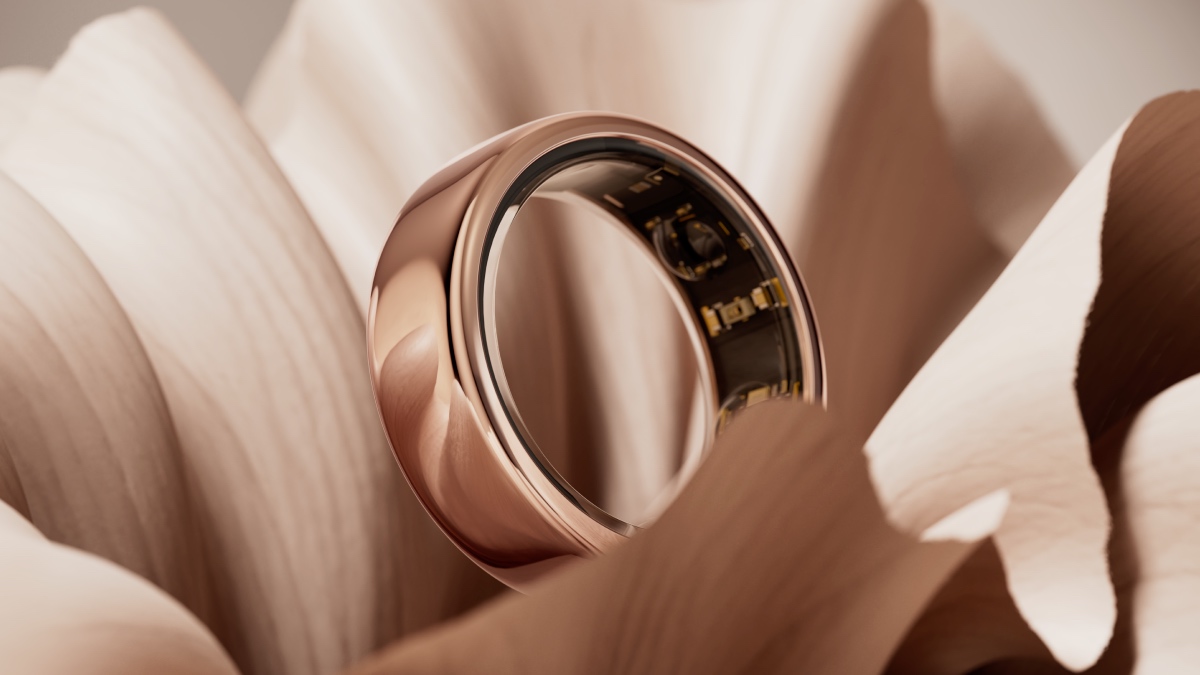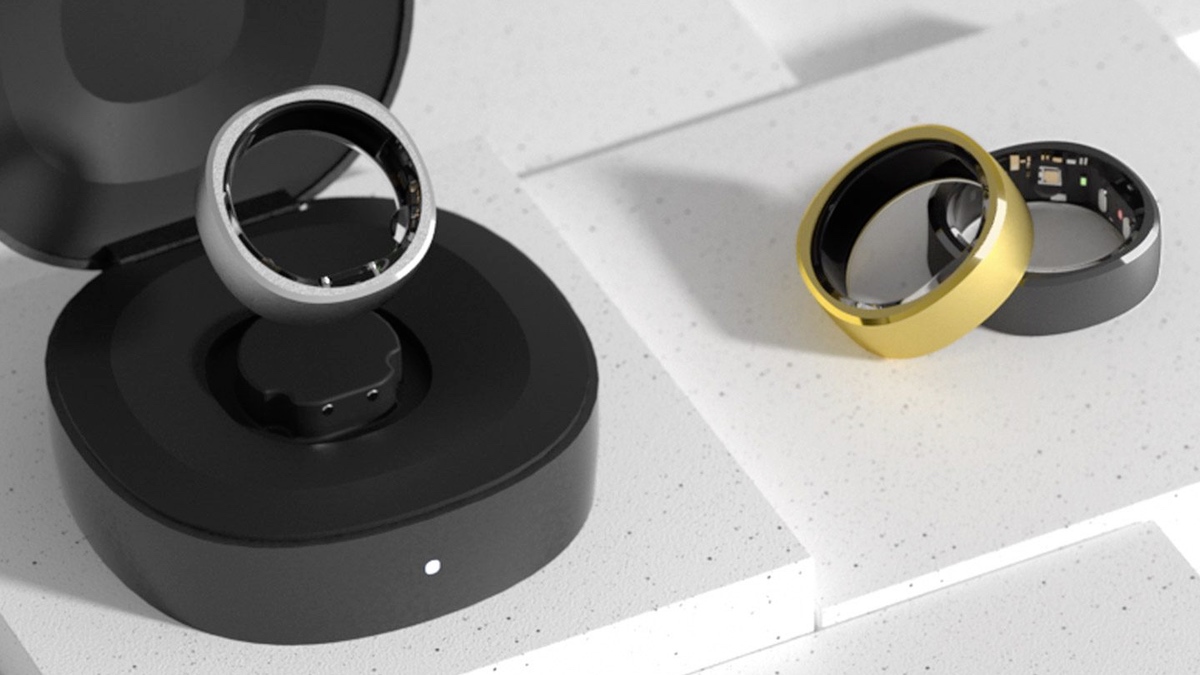
Smart rings have never been more popular, which means industry-leading Oura is beginning to see increased competition from startups such as RingConn.
An Indiegogo success story, RingConn finally began shipping to backers in early 2023 after raising more than $1 million through its campaign.
But this is still a company that's very much at the beginning of its journey in comparison to Oura. The latter boasts over a million active users, with the Oura Ring (Gen 3) becoming one of our top recommendations from testing.
As these platforms grow alongside each other (and inevitably wind up with many of the same health monitoring and fitness features), we'll be using this versus as a tracker for how the two compare.
Below, we've analyzed the key differences in design, price, features, and more to help you pick between these burgeoning smart ring companies.
Design, versions & battery life
Oura
One major benefit of opting with the more established Oura is the increased choice in smart ring design.
Now in its third generation, the Finnish company offers a relatively extensive range of different finishes and styles.
Our favorite is the Oura Ring Gen 3 Horizon Edition, which smooths out the plateaued edge of the older (but cheaper) Heritage model.
More colors are being added all the time, too. Six are available currently for the Horizon - black, silver, gold, rose gold, and then also brushed versions of black and titanium.
Depending on the size, you can expect either design to weigh around 4-6g, which is heavier than the 3-4g for RingConn's singular smart ring.
RingConn
By comparison, though, there's much less variety on offer with the US startup's ring - to be expected given that it's only just being shipped to backers.
There are three colors of the first-gen RingConn Smart Ring - matte finishes of black, silver, and gold - with each featuring the same squared-edge design.
It's also less water resistant than Oura's latest rings. Though the RingConn is certified with an IP68 rating and resistant to 50m, Oura's rings are all able to survive depths of 100m.
All in all, though, it's difficult to tell too much apart when these two are actually on the finger. The titanium frame of each ring ensures they're both equally lightweight and inobtrusive, while also remaining scratch-resistant.
In terms of sizing, it's also worth noting that both Oura and RingConn give you the option of being sent a free sizing kit before ordering if you don't know your ring size.
Both will also last up to around a week on a full charge, though this naturally varies slightly depending on the features you have enabled.
Health monitoring and sleep tracking
RingConn
The core functions of smart rings across the industry are generally the same; there's a clear focus on health tracking and wellness, while the smarts and fitness features are often tacked on.
That's the case for both Oura and RingConn, too, so let's dive a little deeper into the differences in this area.
In our extensive testing over the last couple of years, we've found sleep tracking with Oura's rings to be among the most accurate we've ever seen, while the Readiness Score (and Activity Score) has proven consistently useful and reliable, as well.
By monitoring your heart rate 24/7, Oura takes a running view of key biomarkers such as heart rate variability (HRV), skin temperature, blood oxygen, and respiratory rate and crosses it with activity data and sleep performance to give you a more rounded, holistic view of your health.
New features are also being added all the time. Oura's platform grew to include daytime stress tracking - based on some of those markers just mentioned - in 2023, with 'Stress Resilience' slated to land in 2024.
Women's health tracking is also a key staple, too, with period prediction, cycle insights, and integration with the FDA-approved Natural Cycles birth control app.
It's a very similar story, however, when you look across to RingConn.
Tracking for blood oxygen, skin temperature, HRV, respiration, and heart rate is present both throughout the day and during sleep, with stress tracking comprising all-day monitoring, as well as insights into stress ratio and sleeping stress.
It doesn't feature the same insights into readiness, though, which is the big difference between the two platforms. The other omission from RingConn is any kind of women-focused health features, though the company does suggest menstrual cycle prediction will be coming in 2024.
Instead, RingConn provides more general health reports (by day, week, or month) and records your trends in a similar way to Google Fit and Apple Health.
Smart and fitness features
RingConn
As we say, additional features are often a bit of an afterthought in the world of smart rings - at least when compared to devices like smartwatches.
Yet, there are still some smarts and traditional fitness tracking that Oura and RingConn's devices are capable of - and the profiles are very similar.
Oura has the edge when it comes to fitness tracking, with its rings able to offer automatic exercise detection that logs movement, steps, heart rate, calorie burn and more from a specific activity.
As with any smart ring, the accuracy of the activity tracking is pretty average due to the placement on the body, but it's there nonetheless - and manual tracking can also help fill in some of these gaps.
Personally, we've found Oura's ability to link with Google Health Connect a really helpful integration, since it means the platform can supplement data from other devices to help keep those Readiness and Activity scores relevant.
The same can't quite be said for RingConn at present. You'll still receive an activity score, and there are those links to Google Fit and Apple Health, as well as step tracking and calorie burn estimates, but the ring's 'Workout Mode' is still in development.
Neither also excels in the smart features department. You'll be able to pair both with iOS and Android, and there's growing support for different languages, but there's no support for things like notifications or calls.
Prices and subscriptions
Oura
The price of entry into RingConn's platform is very straightforward in comparison to Oura - you pay $279 for the ring itself and there are no subscription fees.
This makes it very competitive price-wise when compared to the rest of the smart rings on the market - including Oura.
The Finnish company's Heritage collection ranges from $299/£299 - $449/£449 depending on what color you choose, while the Horizon rings come in at $349/£349 - $549/£549.
However, with a monthly subscription required to use Oura, the cost is ongoing.
You'll have to pay for an Oura membership to get any use out of the smart ring, and this comes in the form of a rolling $6.99 / £5.99 monthly fee.
This totals roughly $84/£72 per year.
Which should you choose?
Oura offers a more mature, refined platform in almost every area when compared to RingConn. There's more choice in designs, while health and sleep tracking accuracy is second to none.
Plus, new and innovative features are being added every few months.
The main downside to Oura is the price, which is why RingConn may be a compelling alternative for you.
In our view, the cost difference between each company's rings is pretty negligible, given that Oura's devices are more polished than RingConn's first-gen product, but the monthly subscription fee is a bit of a sore spot.
If you don't want to continue paying even after you've bought the device, RingConn is the answer. And given the fact it does offer many of the same features as Oura, we're sure some will view it as better value for money.
With the RingConn platform still in its early days, though, just don't expect as clean an experience as what you'll find with Oura.
How we test
